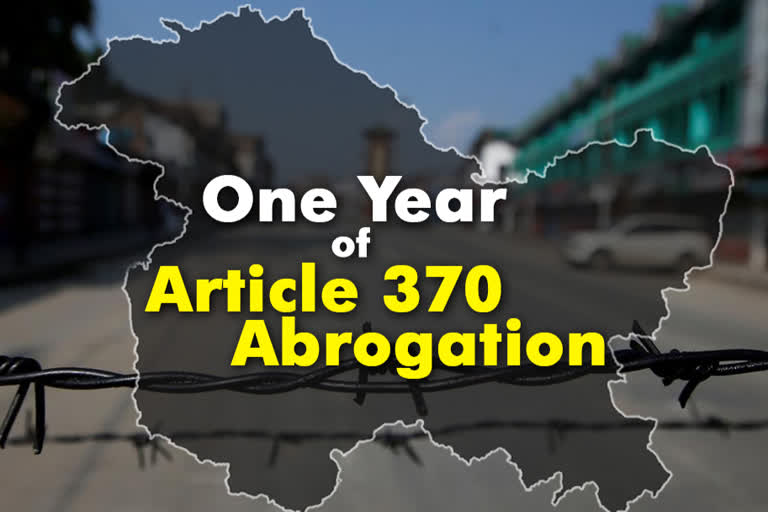Srinagar: Today marks the anniversary of the Abrogation of Article 370 and 35A, when last year the erstwhile state of Jammu and Kashmir (J&K) was stripped of its special status and bifurcated into Union Territory (UT) of Ladakh and the Union Territory of Jammu and Kashmir.
The now-scrapped Article 35A gave special rights to the people of J&K and defined people who are/shall be permanent residents of the state. It also governed special rights and privileges for residents on State government employment, scholarships, acquisition of immovable property and settlement rights.
The ruling Bharatiya Janata Party (BJP), in August, proposed the Jammu and Kashmir Reorganisation Bill of 2019 - a resolution suggesting the removal of the 1954 order which passed through both houses of Parliament in two days, and received the presidential assent.
President Ram Nath Kovind signed a Presidential Order for the same, thus forming an Act, on August 9, 2019.
Also read: Year later, Kashmir status change not a talking point with West Asia: Former Ambassador Anil Trigunayat
The new act has accorded more powers to the Lieutenant Governors of the UT J&K - with the legislature and UT Ladakh - under central rule.
Implementation of Section 144
On August 5, 2019, from midnight, Restrictions under Section 144 Code of Criminal Procedure (CrPC) were put into effect in Srinagar.
Simultaneously, People's Democratic Party (PDP) president Mehbooba Mufti, National Conference (NC) vice-president Omar Abdullah, veteran Kashmiri MP and former chief minister Farooq Abdullah, Congress leader Usman Majid and CPI(M) leader M Y Tarigami along with thousands of other local leaders were placed under house arrest.
Also read: J&K still awaits for a new economic dawn a year after losing special status
The valley witnessed a telecommunication and internet blackout lasting more than five months.



